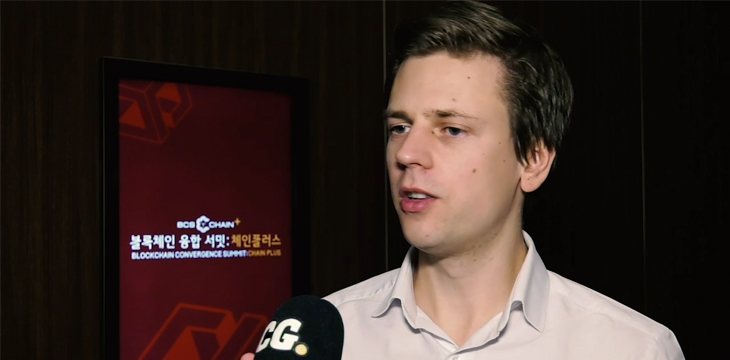|
Getting your Trinity Audio player ready...
|
How can technologies like distributed ledger help countries stay relevant? In Estonia’s case, the answer is simple: it helps gain trust between the government and the people.
Kaspar Korjus, who manages Estonia’s e-Residency program, says the country is looking at doubling its GDP in seven to eight years’ time, with the help of new technologies like distributed ledger and blockchain.
“If nations are becoming borderless, then they can really scaling their GDP also, and distributed technology is definitely one part of that which helps to gain trust between nations and citizens because it’s all about trust,” Korjus tells CoinGeek.com. “If people don’t trust the nation, they don’t want to use digital services, and distributed technology helps to show that you don’t need to trust any government employee but you can trust mathematics, encryption and technology which shows that no one is tampering your data.”
In 2014, Korjus launched e-Residency, a program that allows entrepreneurs to establish a digital identity in Estonia and run a location-independent EU company online. To date, Korjus said the e-Residency program has become “very popular globally,” with over 60,000 e-Residents from around the world.
“Each person on the planet can become our citizen, an e-resident, and get an ID card and enter into Estonian digital society, according to Korjus, who stepped down from his post as managing director of e-Residency in January but has stayed on as the program’s acting director until his replacement is found.
At the recently held Blockchain Convergence Summit-Chain Plus conference in Seoul, Korjus laid out the 10 phases of staying relevant with the help of technology. One step is tokenizing the ecosystem, which in Estonia’s case is the introduction of Estcoin. Korjus explains: “Nations similarly as private sector can also launch crypto tokens, and Estcoin was a proposal which I made one year ago regarding offering e-Residents a token which they can exchange value between each other and which Estonia, as a nation, [can place] value price and then it would be more convenient to do international trade and for e-Residents themselves to exchange currency. This is in analysis phase and hopefully one day, Estonia will be the first nation to launch it.”
Unfortunately, Estonian officials have reportedly shot down the Estcoin proposal, saying that the only suitable currency for the EU state was the Euro. But to stay relevant, as Korjus says, there’s no denying that tokenization is worth looking into, particularly on a blockchain that is government- and regulation-friendly like Bitcoin SV (BSV).
Tokenized, for instance, is an on-chain token system designed exclusively for the BSV network, offering protocols for over 40 separate kinds of contract, from financial assets like stocks, bonds, notes, futures and asset-backed securities to tickets for movies, transportation and events, or even credit and point systems as well as licenses.
https://youtu.be/gBb9FSxfyVs

 02-21-2026
02-21-2026 




